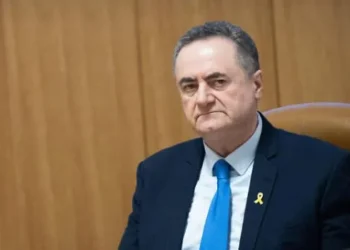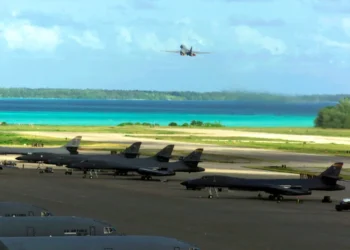Geneva (ICRC) – The recent violence in Israel and Gaza is at a level we have not seen in many years and has the potential to escalate dramatically, causing even more pain and anguish on all sides.
Amid the devastating violence – the premeditated killings of civilians, and the bombings in residential neighborhoods – a worrying sign is that few voices of de-escalation have been heard. Heightened war rhetoric, in our experience, leads to greater civilian suffering.
The ICRC, permanently present in Israel and the occupied territories since 1967, has long been witness to the devastating killing of civilians leading to further spirals of violence and hatred.
Without immediate restraint, we are heading for a humanitarian disaster.
Mirjana Spoljaric, President of the International Committee of the Red Cross (ICRC), said:
“Civilians always pay the highest price in conflict. At this critical moment, we urge the parties to respect their obligations under international humanitarian law and to take every possible step to prevent civilians from further harm. All sides must exercise restraint and protect civilian lives and property.
Killing civilians and ill-treatment are prohibited by the Geneva Conventions. In addition, the Conventions demand that the wounded and sick are cared for. People detained must be treated humanely and with dignity. Hostage-taking is prohibited under international humanitarian law and hostages should be immediately released unharmed.
Critical infrastructure that people depend on to live – including electricity and water networks – must not be targeted. Irrespective of any military siege, the authorities must ensure that civilians have access to basic necessities, including safe water, food and medical care.
I’m extremely concerned about the suffering families who have lost contact with a loved one are now going through, a devastating situation.
We are ready to do everything we can to help, including in our role as a neutral intermediary. Humanitarian workers must be allowed free passage to assist those in need. Medical facilities and medical personnel must never be targeted.”
The ICRC immediately offered humanitarian support to both sides, and we are working to provide support to the authorities in identifying missing people. We have also dispatched medical supplies to a hospital in Gaza.
ICRC teams are working closely with the Magen David Adom (MDA) and the Palestine Red Crescent Society (PRCS) to assist those who are wounded or sick and in need. Staff from both of these humanitarian organizations have become casualties of the violence; health-care workers must be protected at all times.
The ICRC is ready to help reunite families and loved ones, clarify the fate of those missing, and evacuate the wounded in coordination with the PRCS and MDA.
The ICRC has communicated with all parties to remind them of their obligations and responsibilities under international humanitarian law. We are in constant communication with the parties to coordinate our humanitarian access and response.
About the ICRC
The International Committee of the Red Cross (ICRC) is a neutral, impartial and independent organization with an exclusively humanitarian mandate that stems from the Geneva Conventions of 1949. It helps people around the world affected by armed conflict and other violence, doing everything it can to protect their lives and dignity and to relieve their suffering, often alongside its Red Cross and Red Crescent partners.
The ICRC has been present in Israel and the occupied territories since 1967. This includes the occupied Palestinian territory of Gaza and the West Bank, including East Jerusalem. We are in regular dialogue with all relevant authorities to promote international humanitarian law. Our activities include visiting detainees, reuniting families, supporting livelihood projects, and helping improve access to essential services like water and electricity. We work with the Palestine Red Crescent Society and Magen David Adom.














